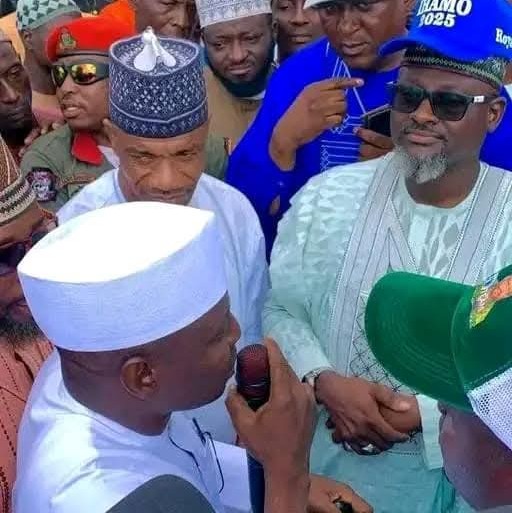By Abdul-Azeez Suleiman – In the vibrant political landscape of Nigeria, by-elections often serve as a litmus test for the prevailing sentiments among the electorate. The forthcoming by-election for the Zaria constituency legislative seat in the Kaduna State House of Assembly is poised to be a noteworthy chapter in this ongoing narrative. The All Progressives Congress (APC) and its candidate, Engineer Isah Haruna Baban Yaya Ihamo, appear to be on the brink of a significant victory, bolstered by an array of influential endorsements and a well-structured campaign strategy. In contrast, their challenger, Abdallah Wapah, seems to face an uphill battle in this contest.
At the heart of the APC’s advantage lies the formidable support from the Chairman of the Zaria Local Government Council. This endorsement not only amplifies the party’s visibility but also consolidates its grassroots appeal. Local government leaders wield considerable influence in Nigerian politics, often acting as the bridge between the electorate and the political elite. The Chairman’s backing signals to voters that the APC is aligned with their interests and concerns, thereby enhancing the party’s credibility and increasing its chances of success.
Moreover, the solid influence of Tajudeen Abbas, the Speaker of the House of Representatives, adds another layer of strength to Engineer Ihamo’s campaign. Abbas’s stature in the political arena cannot be overstated; his position at the helm of the House of Representatives affords him significant clout, not only within Kaduna State but across the nation. His endorsement sends a clear message: the APC is a party of choice, equipped with the support of key national figures. This strategic alliance is likely to resonate with voters who seek stability and continuity in governance.
In stark contrast, Abdallah Wapah, the challenger, faces a daunting task. While he may possess commendable intentions and a vision for the constituency, the lack of substantial backing from influential figures poses a significant obstacle. In the world of politics, perception often trumps reality; a candidate perceived as weak or lacking support is unlikely to inspire confidence among the electorate. Wapah’s challenge is not merely to present his ideas but to overcome the narrative that he is an underdog in a race that appears to be heavily tilted in favor of the APC.
The dynamics of this by-election are further complicated by the socio-political context in which it unfolds. Zaria, a city steeped in history and cultural significance, has a diverse electorate with varying needs and aspirations. The APC’s campaign strategy must, therefore, resonate with the electorate’s desire for effective representation. Engineer Ihamo’s ability to communicate a vision that aligns with the aspirations of the constituents will be crucial in securing their votes. His background as an engineer may also play a pivotal role, as voters often gravitate towards candidates who possess technical expertise and problem-solving capabilities, especially in a region grappling with infrastructural challenges.
Furthermore, the role of grassroots mobilization cannot be underestimated. The APC’s established network of party loyalists and volunteers will be instrumental in canvassing support. Door-to-door campaigns, community engagement initiatives, and town hall meetings can foster a sense of belonging and encourage voter turnout. In an era where political apathy is a growing concern, the ability to connect with constituents on a personal level can make a significant difference.
As the election date approaches, the importance of strategic communication becomes increasingly apparent. The APC must leverage various media platforms to disseminate its message effectively while countering any negative narratives that may arise. Social media, in particular, offers a powerful tool for reaching a broader audience and engaging with younger voters who are increasingly becoming a decisive demographic in Nigerian elections. Crafting a compelling narrative that highlights the party’s achievements and future plans will be essential in galvanizing support.
In conclusion, the by-election for the Zaria constituency legislative seat is shaping up to be a critical moment for both the APC and its challenger, Abdallah Wapah. The overwhelming support for Engineer Isah Haruna Baban Yaya Ihamo, fortified by influential endorsements and a robust campaign strategy, positions the APC as the frontrunner in this contest. In contrast, Wapah faces the challenge of overcoming perceptions of weakness and mobilizing support in a landscape that appears to favor his opponent. As the electorate prepares to cast their votes, the outcome will not only reflect the political dynamics of Zaria but may also serve as a harbinger for future elections in Kaduna State and beyond. The tapestry of Nigerian politics is ever-evolving, and this by-election is but a thread in the larger narrative of democracy in action.


